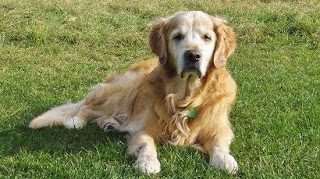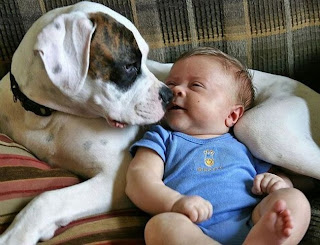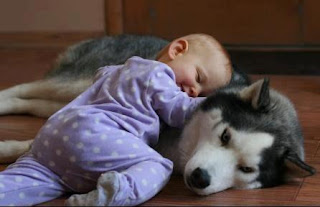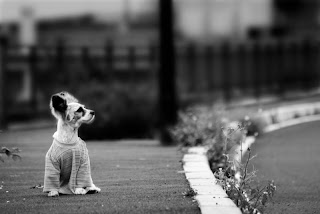Los cachorros necesitan juegos para desarrollar su inteligencia y su capacidad de relación social. Como vimos en nuestros artículos "Y que le gusten los bebes", los tres primeros meses de la vida del cachorro son fundamentales para sentar las bases de un correcto desarrollo cognitivo, emocional y social.
Unos sencillos juegos con los cachorros ayudan a desarrollar su concentración e inteligencia, además de sentidos como el oído y el olfato.
Los siguientes juegos sirven para que dueños eduquen y enseñen a cachorros ciertas pautas de obediencia básica.
- El escondite: para este juego se necesitan dos personas y el cachorro. Esta actividad fomentará el desarrollo del oído, el olfato y la concentración. Una de las dos personas se esconde y la otra se queda junto al cachorro mientras le marca de manera verbal las pautas que debe seguir: "busca a..., encuentra a..., o dónde está." La persona que está escondida tendrá que llamar al perro por su nombre para que vaya a buscarle, cuando lo encuentre la persona le felicitará y le premiará con su juguete favorito. Los perros caseros tienden más a desarrollar mucho más la vista que el olfato, por eso el juego del escondite es bueno, ya que, estimula a los cachorros para usar su nariz.
- Esconder comida: se esconde la comida en un cubilete y éste se coloca en medio de dos cubiletes vacíos. De este modo, por medio de su olfato y su capacidad de observación el cachorro averiguará en qué lugar se encuentra su premio comestible.
- Enseñar a dar la pata: esta acción junto con la de sentarse o tumbarse favorecen la obediencia del perro. Estos juegos deberán ir acompañados de premios y felicitaciones verbales que ayuden a estrechar lazos emocionales entre el dueño y el perro. Cuando el cachorro aprende a sentarse o dar la pata desarrollan su capacidad de autocontrol.
- Juegos mudos: estas actividades ayudarán a desarrollar la atención del perro. Por ejemplo, pasear con el cachorro sujeto con la correa, cuando el dueño se pare el perro deberá entenderlo y parar sin que su dueño le de ninguna indicación verbal. Los pies de los amos deben indicar a los cachorros cuando deben caminar o frenar. Esta actividad desarrollará su atención y la coordinación con su dueño durante los paseos.
Puppies need games to develop their intelligence and social relatedness. As we saw in our articles "Must Love Babies", the first three months of the puppy's life are critical for laying the foundations of a correct cognitive, emotional and social.
Some simple games with puppies help develop their concentration and intelligence, plus senses like hearing and smell.
The following games serve to educate and teach owners certain guidelines puppies basic obedience.
- The hiding: For this game you need two people and the puppy. This activity will encourage the development of hearing, smell and concentration. One of the two people hiding and the other is next to the puppy while he verbally mark guidelines to follow: "looking for ..., located ..., or where it is." The person that is hidden will have to call the dog's name to go looking for him, when you find the person will congratulate you and reward him with his favorite toy. Pet dogs are more likely to develop sight more than smell, so the game of hide is good, because, encourages puppies to use your nose.
- Hiding food: food is hidden in a beaker and it is placed in between two empty cups. Thus, by their smell and their ability to observe the puppy find out where in your prize is edible.
- Teaching to the leg: this action along with the sitting and lying dog obedience favor. These games must be accompanied by prizes and congratulations verbal emotional help strengthen ties between the owner and the dog. When the puppy learns to sit or leg to develop their self-control.
- Games dumb: These activities help develop the dog's attention. For example, walk with the puppy on leash when the dog stand owner must understand and stop without his landlord any verbal indication. The feet of the masters should indicate the puppies when they walk or slow. This activity will develop your attention and coordination with the owner during walks.













